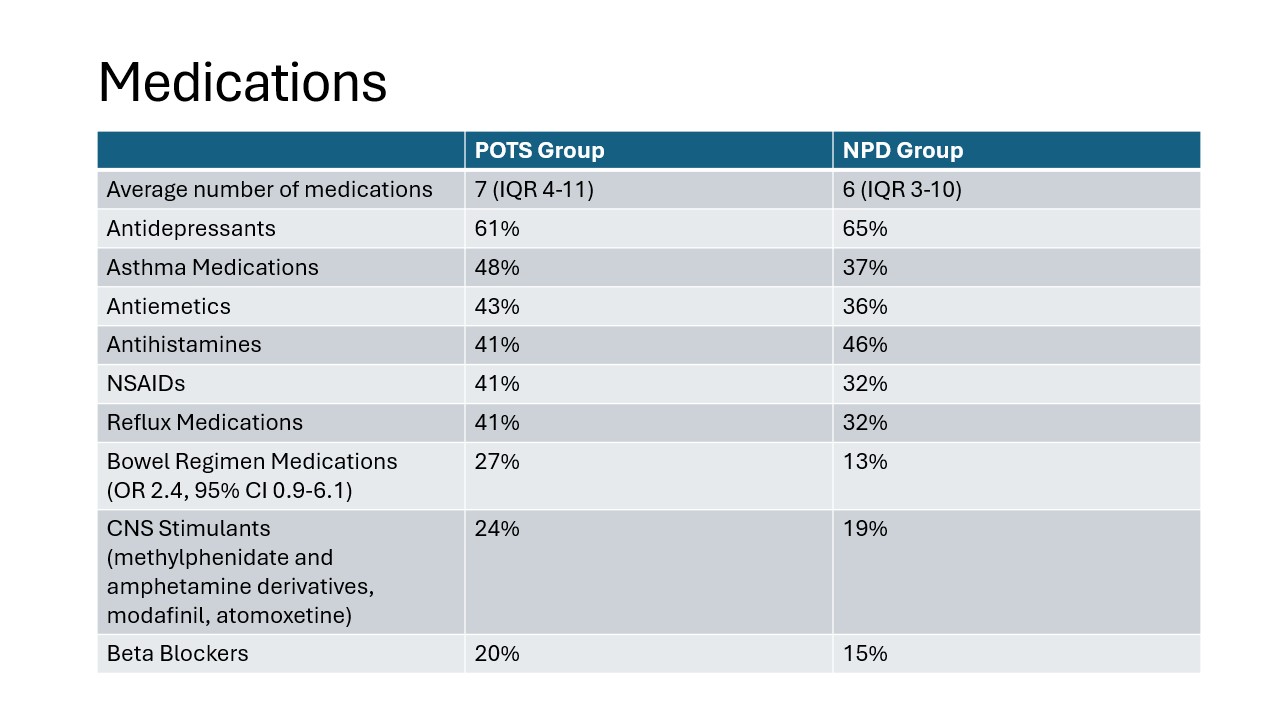Adolescent Medicine 5: Potpourri
Session: Adolescent Medicine 5: Potpourri
144 - Pharmacogenomic profile of pediatric patients with dysautonomia
Monday, April 28, 2025
7:00am - 9:15am HST
Publication Number: 144.6526
Alexander Gurfinkel, Mayo Clinic, Rochester, MN, United States; Ole Olson, Mayo Clinic Children's Center, Rochester, MN, United States

Alexander Gurfinkel, MD
Consultant, Department of Pediatrics
Mayo Clinic
Rochester, Minnesota, United States
Presenting Author(s)
Background: Patients with dysautonomia frequently experience inconsistent responses to medications, influenced by their pharmacogenomic (PGx) profile. Cytochrome P450 enzymes, particularly CYP2D6, which has over 130 alleles with varying activity, are crucial for drug metabolism. CYP2D6 metabolizes more than 25% of medications, including many antidepressants, antipsychotics, and beta-blockers.
Objective: We propose that patients with dysautonomia and postural orthostatic tachycardia syndrome (POTS) have a higher rate of P450 polymorphism compared to the general population and aim to characterize this.
Design/Methods: PGx profiles, demographic information, tilt table results, and medications were analyzed in patients referred for dysautonomia evaluation between 2018-2023. Patients with sustained heart rate increase of ≥40 beats/min within 10 min of head-up tilt and symptoms of orthostatic intolerance without alternative explanation were characterized as having POTS. PharmGKB, an NIH-funded database, was used for population-based comparisons. 154 patients met study criteria and were included, 46 met POTS criteria.
Results: 77% were female. 87.7% were White, 2.6% were Black, 1.3% Asian. Mean age of patients was 16.2 (SD 2.14) years in POTS group and 15.7 (SD 1.95) years in no-POTS dysautonomia group (NDP). Respective CYP2D6 activity levels for POTS, NDP, and PharmGKB reference groups were: poor metabolizer (15%, 7%, 7%), intermediate (41%, 45%, 38%), normal (39%, 43%, 49%), and ultrarapid (0, 3%, 2%). Median number of medications in POTS group was 7 (IQR 4-11), 6 (IQR 3-10) in NPD group.15% of patients with POTS reported side effects of at least 1 medication vs 9% in NPD group.
Conclusion(s): Delayed diagnosis and frequent comorbidities in patients with dysautonomia commonly lead to involvement of multiple specialists and polypharmacy.
In this cohort, 1:6 POTS patients had minimal or no CYP2D6 activity while population average is 1:14. CYP2D6 poor metabolizers have increased risk for bradycardia and decreased blood pressure from metoprolol. Use of a beta blocker not dependent on CYP2D6 activity should be considered.
CYP2C19 is heavily involved in proton pump inhibitor (PPI) metabolism. Esomeprazole and rabeprazole are less dependent on and preferred in those with rapid or ultrarapid CYP2C19 activity. In POTS group, 39 (85%) were taking at least 1 medication with PGx based guidelines available.
This is the first paper to our knowledge reporting on PGx data in patients with dysautonomia. Using PGx data in this polypharmacy prone population will result in safer and more effective medication choices and dosing regimens.
Pharmacogenomic characteristics of patients with POTS, no-POTS dysautonomia (NPD) and general population
.jpg)
Medications in POTS and NPD patients


